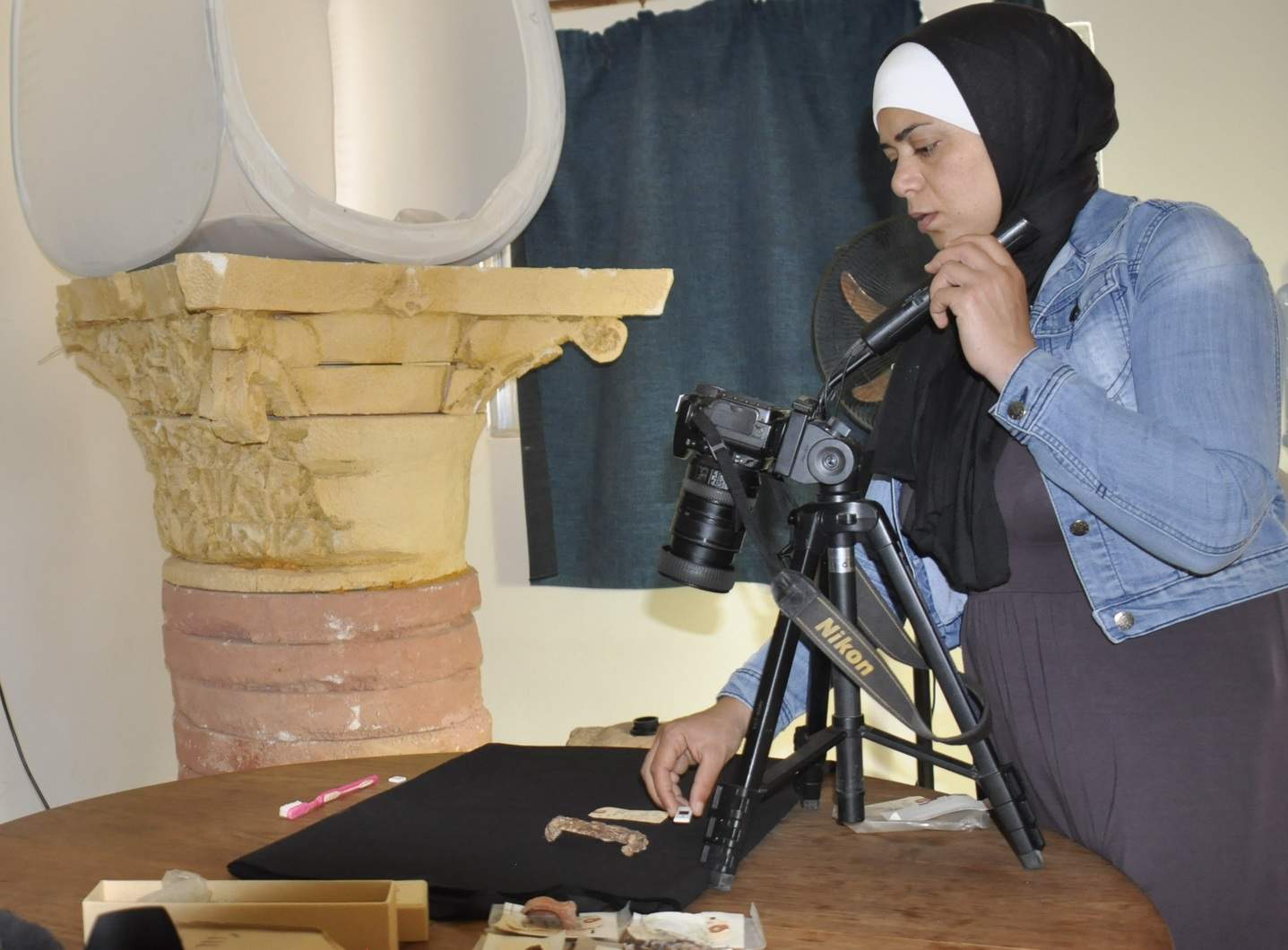
Since joining ACOR’s Board of Trustees in 2012, I have been fascinated by the Temple of the Winged Lions Cultural Resource Management (TWLCRM) Initiative’s focus on empowering local women in the Petra region. An award-winning, breakthrough project, the TWLCRM has worked hard to develop a gender-blind, egalitarian hiring system in which women receive equal opportunity and equal pay to work.
When hiring first began under the project’s Ambassadors Fund for Cultural Preservation grant back in 2012, only a few women were involved with the project; by the next year, when I visited Petra with ACOR Board President Randy Old and his wife Jody, nearly 100 women had been employed, mostly as participants in two informal cooperatives organized to produce the several thousand sandbags needed for the project.

Since manufactured sandbags are not readily available in Jordan, the cooperatives modify used burlap rice bags to fulfill the same function. First, the cooperative leaders distribute empty rice bags to local women who want to work and whose families are most in need of the extra income. The women then modify the bags by sewing them into the needed size and shape, after which they are taken to the Temple of the Winged Lions site and filled with “clean” soil produced from the sifting of old excavation dumps. Once filled, the bags are sewn closed by another team of local women, ready to be used to bolster, stabilize, and protect the temple’s fragile sandstone walls.
When I visited Petra in 2013, I spoke with three women—Ageleh Jmeidi, Khatima Jdeilat, and Jawar Jdeliat—who had become leaders in the local cooperatives. For all, the opportunity not just to work but to contribute and lead means a lot. “The work is good and it’s helping with the monthly bills and so there’s more opportunity for my children to go to school and to study,” said Ageleh, who has since become one of the project’s core permanent team members. “We feel we have more opportunity and are not just sitting in the house.” Later, I learned that Ageleh was able to use her initial income from the project to renovate her entire house.

Ageleh also noted how working for the TWLCRM has brought more stability to her family’s income. “Before working [on the team] I sold souvenirs in Petra, but I knew the income was not sufficient or certain,” she said. “[My income] is now more consistent. I have two daughters at university, and the other daughter will now be able to go, too.” All of the women expressed how encouraging their families were regarding their employment, and Jawar even added proudly that her son worked for the TWLCRM as well and hoped he would do so for a long time.
Some women on the Temple of the Winged Lions project are also being trained in more technical skills. Eman Abdelsallam has worked with the TWLCRM since 2013 and has gradually risen to become the project’s lead Documentation Specialist and, more recently, the president of Sela, a local non-profit company specializing in vocational training in cultural heritage preservation.

When I spoke with Eman in 2013, I was thrilled to see how much she enjoyed her work, especially the degree to which it had positively impacted both her life and the lives of her children. Eman, a former teacher, often brings her two young children, Maria and Hossam, to the site and to project events so they, too, can experience the job she loves so much. She enjoys the camaraderie of being on a team and, whenever asked, expresses a quite passion for the work she is doing. “[The work] changed my whole life,” she said.
Written by Anne Dunn
An ACOR Board Member since 2012, Anne Dunn is an avid archaeology and travel enthusiast who now visits Jordan regularly to experience firsthand its fascinating history and heritage. She received a B.A. in English Literature from Wheaton College in Norton, Massachusetts, has a Master of Arts in Education degree from Seton Hall University, and also earned a Master of Divinity degree from Union Theological Seminary in New York.
The ACOR Blog is proud to feature the stories of supporters like Anne who appreciate the positive role ACOR plays in Petra and communities throughout Jordan. Please e-mail us at acor@acorjordan.org to tell us why you support ACOR, or click here to learn how you can give back to ACOR and Jordan.